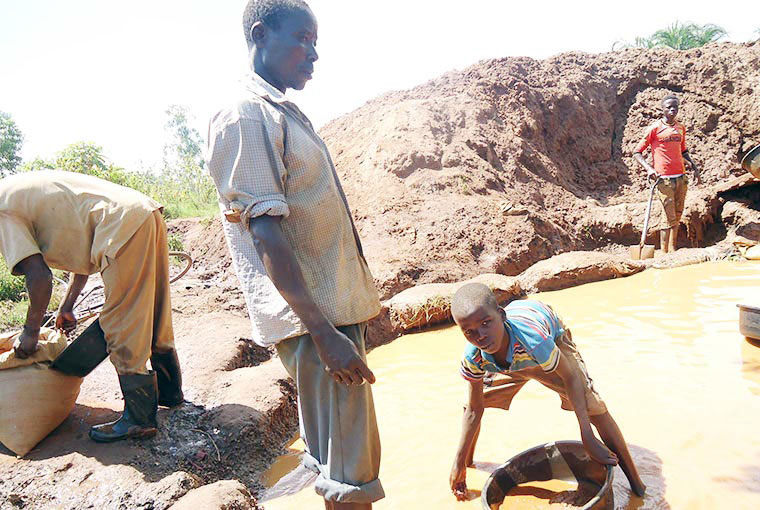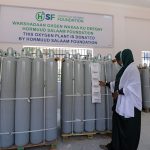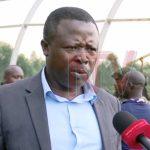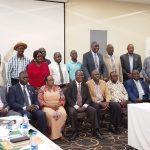Gold miners in Kassanda and neighboring areas and hills of Kitumbi Sub-county in Mubende District, are choosing to ignore safety guidelines, continuing to use mercury despite the well-documented health hazards associated with the practice. The ban on mercury usage in mining operations, instituted under the Mining and Mineral Act of 2022, has failed to deter artisanal and small-scale miners in Kassanda District from endangering their health.
President Museveni’s approval of the law in October 2022, with penalties ranging from hefty fines to imprisonment, was meant to safeguard miners and their communities from the adverse effects of mercury exposure. However, on the ground, the situation remains unchanged as miners persist in using the toxic substance.
Vincent Ssendijja, a resident of Lugongwe and an active miner in Kassanda, acknowledges being aware of the health hazards associated with mercury after undergoing sensitization programs. Despite this awareness, he points out that the lack of affordable alternatives forces miners to continue with the dangerous practice. Ssendijja highlights that while some colleagues attended lessons on alternative gold processing methods, only a few implemented the newly acquired knowledge.
Interestingly, the cost of mercury has seen a significant surge in recent months, with prices soaring from Shs500,000 to Shs700,000 per kilogram to a current range of Shs1 million to Shs1.5 million. Ssendijja interprets this price hike as a factor enticing miners to seek cheaper alternatives. He emphasizes the necessity for comprehensive government-led awareness campaigns and training sessions to introduce miners to safer methods.
Flavia Nampeera, the Kassanda District vice chairperson, discloses a concerning statistic – 98 percent of gold miners in Kassanda continue to use mercury. The majority of these miners operate small processing centers, with 70 percent of them utilizing basins, directly exposing themselves to toxic substances. Nampeera emphasizes the urgent need for mass sensitization, especially among women involved in gold processing, to mitigate the health risks associated with mercury exposure.
Mercury inhalation is known to cause neurological problems, posing significant health risks not only to miners but also to the communities residing around the mines. Water and soil contamination further exacerbate the problem, contributing to physical and mental disabilities, especially in children. Despite the alarming situation, Kassanda District lacks the capacity to construct modern processing centers, relying on ongoing sensitization efforts to address the issue.
Ms. Nampeera expresses doubts about the effectiveness of the Mineral Protection Unit, citing concerns about possible extortion from the miners. She argues that the unit, established to protect miners, may not be fulfilling its mandate, potentially jeopardizing the health and safety of those it is meant to safeguard.
In response to these allegations, Richard Ssenyondo, the commandant of the Mineral Police Protection Unit, denies any claims of extortion. He asserts that discussions with Kassanda District leaders have focused on addressing various mining-related issues and enhancing collaboration between the authorities and miners.
Background
Kassanda and Mubende districts host a significant number of artisanal miners engaged in gold mining activities. The local leadership, in collaboration with government and partners, has been actively involved in educating miners about the dangers of using mercury. The Mining and Mineral Act of 2022 explicitly prohibits the use of mercury in mining, aiming to create a safer environment for miners and surrounding communities.




















